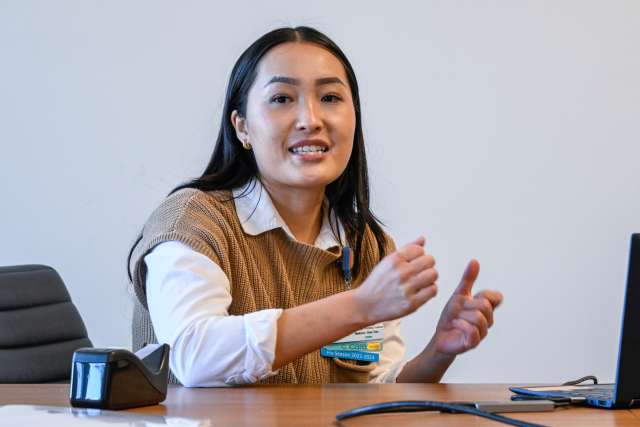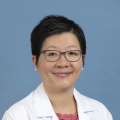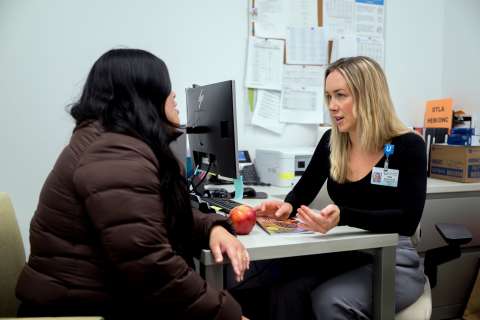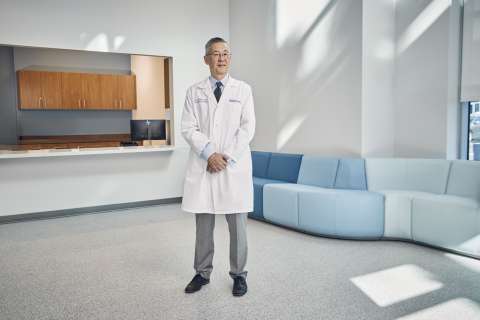Simms/Mann-UCLA Center for Integrative Oncology hosted a workshop in Mandarin and English for metastatic breast cancer survivors and their family members. The Dec. 1 workshop at the UCLA Health Cancer Care Center in Alhambra, was developed to meet the needs of the Asian and Asian American community, in keeping with the Simms/Mann Center mission to provide culturally congruent care to people with cancer.
Presenters covered symptom management, emotional support, and diet and nutrition. Some presentations were in Mandarin, with simultaneous translation available via earpiece, and others in English, with simultaneous translation to Mandarin. Although primarily geared to current UCLA Health oncology patients, the event was open to other members of the community as well.
The goal of the workshop was to provide information and outreach to serve the needs of the community, said Jenny Tran, PhD, a clinical psychology postdoctoral fellow who works at the center and was one of the speakers. Mandarin is the preferred language of many patients at the Alhambra center, she noted, reflecting the population of the surrounding San Gabriel Valley.
Dr. Tran, who discussed the emotional aspects of cancer, including managing cancer-related worry, noted that when it comes to mental health support, there are often cultural barriers for members of the Asian and Asian-American community. There may be a reticence to ask for help that’s rooted in a desire to “save face,” she explained, with patients reluctant to worry their friends or family and to appear self-sufficient. And yet, “when you’re dealing with something scary such as a cancer diagnosis, it’s OK to be scared or upset or frustrated, or to question your faith system.”
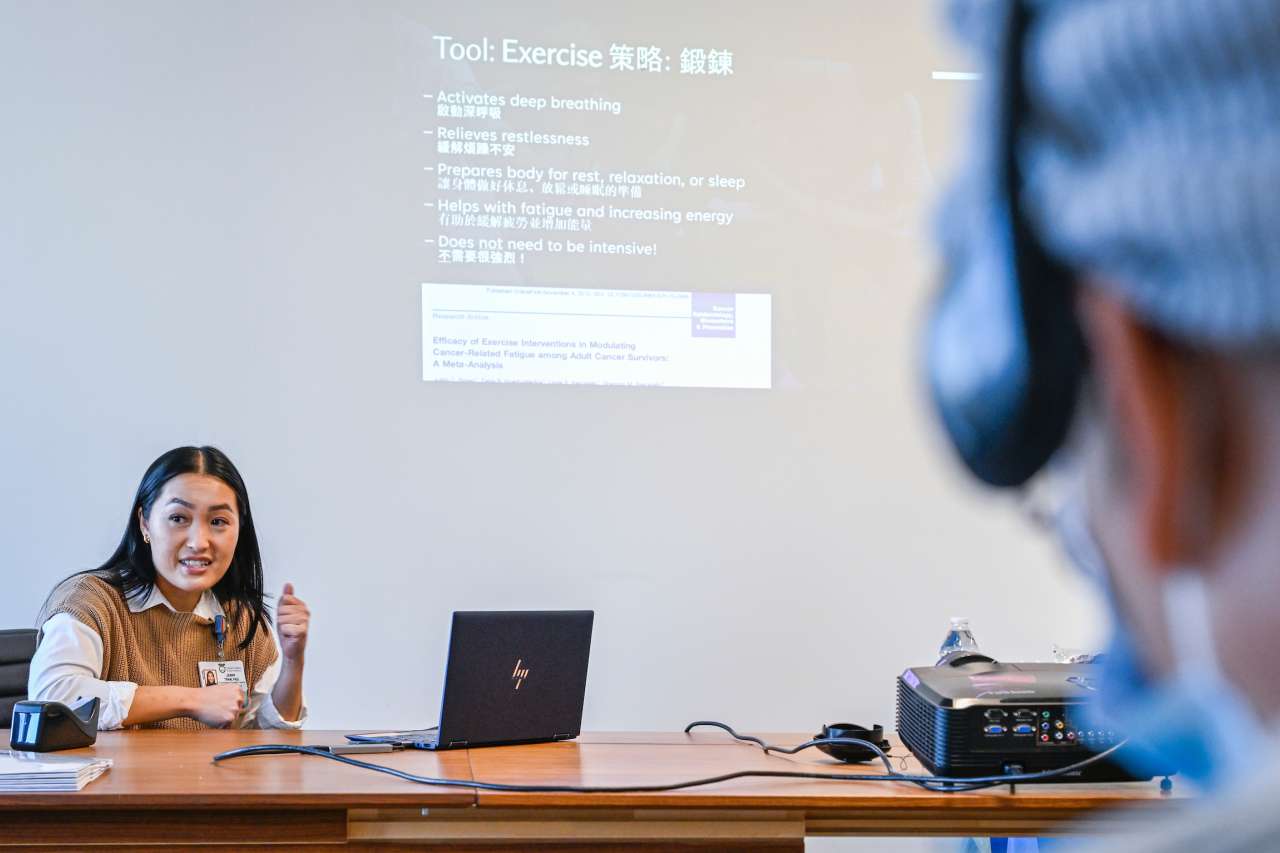
For Dr. Tran, who is part of the Simms/Mann Center program, providing psychosocial support for patients often means working with their caregivers. “Loved ones may not be dealing with the side effects of treatment, but they’re certainly dealing with the worry, the anxiety, the sleepless nights,” she said.
Similarly, diet and nutrition are topics that often concern caregivers, she noted, given their role in preparing meals. This is also an area where cultural relevancy is critical, so that dietary recommendations can be presented in a way that fits with the patient’s preferred cuisine.
The diet portion of the workshop was presented by Deborah Hong, a registered dietician with Simms/Mann Center, while Dorcas Chi, MD, a hematologist and oncologist who practices at the Pasadena and Alhambra UCLA Health cancer clinics, discussed the medical aspects of care for patients with metastatic breast cancer.
This too is an area where cultural aspects often come into play, Dr. Tran noted, given that patients in the Asian and Asian-American community may also be receiving care from traditional Chinese medicine practitioners. While Eastern and Western treatments can be complementary, it’s essential for care providers at UCLA to be aware of herbs or other supplements patients may be taking, she said, given that they may affect the efficacy of some medications.
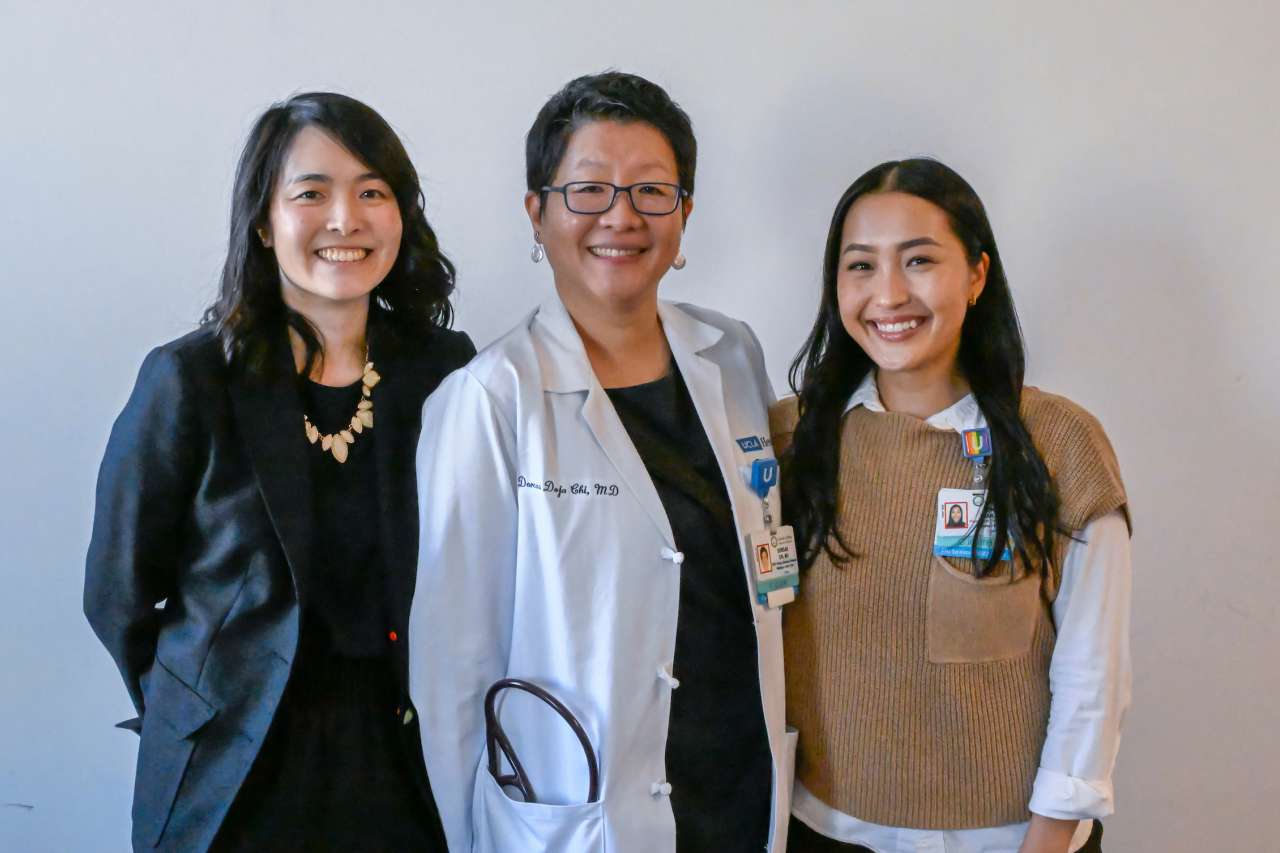
The Simms/Mann-UCLA Center for Integrative Oncology, founded nearly three decades ago, takes a whole-person approach to meeting the needs of cancer patients being treated at UCLA Health and their families.
In addition to providing comprehensive services that include psychological support, nutritional services and wellness programs, the Simms/Mann Center focuses on tailoring services so they’re culturally congruent, including being offered by clinicians who are fluent in the client’s preferred language. The center offers on-site services at all 20 UCLA Health cancer care clinics, which stretch from San Luis Obispo to Laguna Hills.
The Dec. 1 bilingual workshop was made possible thanks to the ROOTS & WINGS Charitable Foundation.
Lisa L. Lewis is the author of this article.

